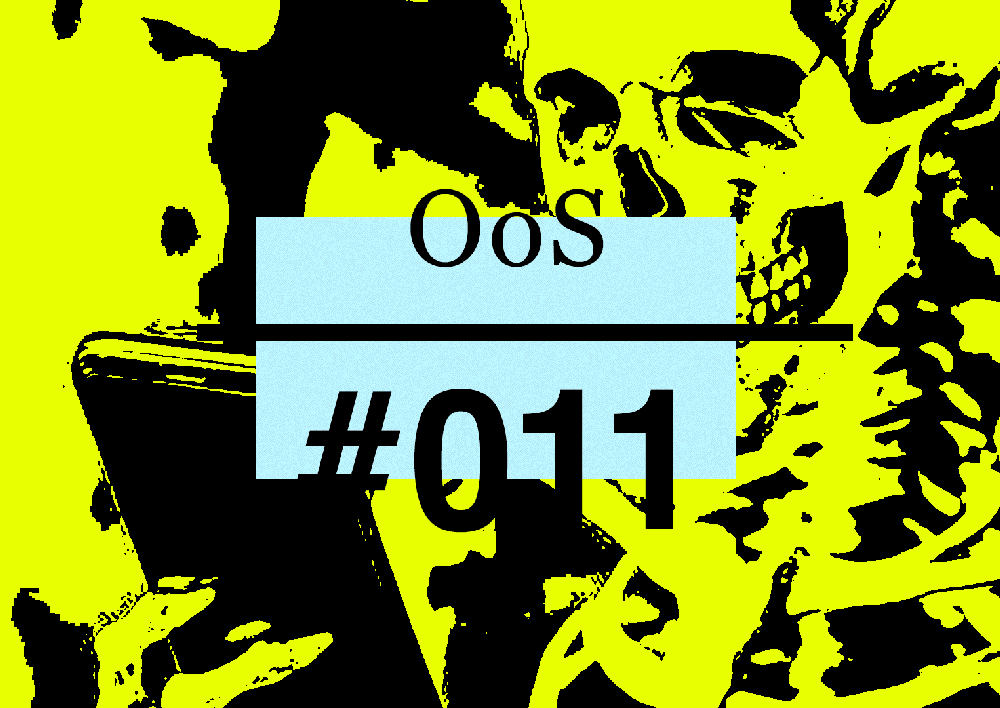


Might as well read it. A newsletter about tech, power, culture, and staying human in a world that keeps trying to automate you.
…………………………….…


DON’T TEXT ME BRO
I was all set to write a wistful piece for this week. Something warm and reflective about the power of nostalgia, the weird comfort of dial-up tones and AIM away messages, maybe even a soft landing into that one time I flunked out of community college (a crowd favorite).
It was going to be grounded.
Vulnerable.
A little redemptive.
I know how to play the hits.
It was going pretty well until I checked my phone.

Not how I like to be reached out to.
Yes, I’m picking on one particular founder today. A guy who cold-texted me out of nowhere, scraped my number from God-knows-where, and led with a line so thirsty it made my phone wince. But let’s be honest.
He’s not the real problem.
The real problem is all of us.
Because this isn’t just about one overzealous founder. It’s the entire internet.
Every inbox-clogging growth hacker, every AI-generated LinkedIn thread, every half-baked startup pitch wrapped in urgency, every cold message riddled with em dashes.
We’re all in the pocket of Big Noise.
What is Big Noise?
It’s VC Twitter.
It’s “build in public” with no substance.
It’s AI-thread bros LARPing as thought leaders.
Big Noise is the ambient pressure: say more, ship faster, shout louder—until none of it means anything.
Not just a strategy. It’s a religion.
More. Faster. Louder. At all costs.
And whether we admit it or not, we’ve all been converted.
Including this text message
Here was someone who had scraped my number from some database, sent me a deck I’d never requested, and was now following up as if we had an established relationship. Mind you this was within 24 hours of the original message.
The casual assumption of access.
The manufactured urgency.
The complete absence of context.
Big Noise propaganda at it’s finest:
Joseph, I pull numbers from public sources because that's what it takes for an entrepreneur starting from scratch... Point taken on the follow up. All the best.
That's what it takes.
No acknowledgment of boundaries crossed. No recognition that another human being’s private number isn’t a public resource for his entrepreneurial journey.
Just the quiet certainty that his need to be heard superseded my right to choose who gets access to my attention.
I recognized my own hunger in his approach, but I also recognized how that hunger had been systematized, stripped of its humanity, turned into a scalable process.
The Art of the DM
But Joey (my friends call me that), aren't you a fan of the cold email?
Absolutely. I wouldn’t be here without a cold email.
This is how I got my first job
Four emails. Spread across eighteen months. A slow descent into desperation dressed as professionalism.

Look at that progression. March: "My name is Joseph Alalou and I am a sophomore..." January: "Columbia student interested in Lazard."
By August: "Good to hear from you" to someone I'd never spoken to.
That last line? "As a brief reminder"? Pure fiction. There was nothing to remind him of.
But I'd learned something by then about the language of belonging. Sometimes you have to manufacture familiarity before you can earn it.
Was it strategic? Absolutely. Was it human? That's the question that matters now.
The Great Automation of Desperation
We're living through the industrialization of hunger.
The same desperation that drove me to email this guy five times is now being packaged into Chrome extensions and Zapier workflows. “Cold Email Templates That Convert.” “10x Your Outbound With AI.” “Scale Your Hustle.”
But here's the thing about hunger: it's supposed to be uncomfortable. It's supposed to make you think carefully about where you aim and how you approach.
When you automate desperation, you don't scale the hunger. You scale the thoughtlessness.
The founder who texted me this morning wasn't hungry. He was efficient. He'd probably sent that same message to 200 VCs before breakfast.
No context. No research. No awareness that he was interrupting real human beings with his urgency.
This is what happens when we try to systematize something as delicate as the human experience of trying to break through.
We lose the very thing that made the breaking through possible in the first place.
Discernment as Competitive Advantage
In a world where anyone can generate perfect prose, the ability to recognize truth becomes the ultimate edge.
I can spot an authentic founder in sixty seconds. Not because I'm smarter than other VCs, but because I've been on the other side.
I know what real desperation looks like versus performed desperation.
I know the difference between someone who's built something people need and someone who's built something people will tolerate.
Scrappy vs. Spammy: A Founder's Field Guide
Tactic | Scrappy (Healthy Hustle) | Desperate (Cringe Hustle) |
Cold Email | Personalized, concise, researched | Copy-pasted template blast with typos |
Follow-up | 1–2 thoughtful nudges with new context | 5 emails in 3 days + "just bumping this!" |
Social Reachout | Connect with shared context or value | Comment-like-DM ambush on every platform |
Deck Delivery | Sent after interest or context | First interaction is "here's my deck" |
Tone | Humble, curious, respectful | Entitled, aggressive, "call me now" |
Data Use | Email from public LinkedIn or company site | Scraped personal phone number and cold-texted |
Credibility | Framing as a peer, showing signal | Demanding time because "I'm building something big" |
Tenacity | Reaches out, waits, adapts | Doesn't take the hint, doubles down |
Narrative | Story earns attention | Victim complex if ignored ("VCs don't get it") |
Outcome | Admired for craft | Muted. Blocked. Screen-shotted. |
The Test of Human Connection
Before you hit send on that next cold outreach, ask yourself:
Did you learn something about this person that only a human could discover?
Are you solving a problem for them, or just creating one?
Would you be comfortable if your mom read this message over your shoulder?
Can you handle "no" with the same grace you'd want if someone was asking you for something?
Here’s the uncomfortable truth: most of what we call “hustle” is just sophisticated spam. The only difference is the sender’s LinkedIn profile.
Real connection requires something automation will never have: the willingness to be genuinely rejected by a real human being.
That's what makes it human. That's what makes it work.
The Piece I Didn't Write
So I never did get to write that wistful piece about nostalgia and dial-up tones.
But maybe this was the piece that needed writing instead. Because here's what I've realized: those AIM away messages I was going to romanticize?
They were the opposite of what's happening now. They were permission-based interruption. You had to be on someone's buddy list.
You had to earn the right to see their clever away message about being "out living life" or whatever teenage profundity we thought was worth broadcasting.
There was friction. Beautiful, human friction.
The internet used to have speed bumps. You couldn't just scrape someone's phone number and text them your pitch deck.
You couldn't auto-generate 500 personalized emails before lunch. You had to work for attention. You had to deserve it.
We've built a world where anyone can reach anyone, and we've convinced ourselves this is progress. But what we've actually built is a world where no one can hear anyone, because everyone is shouting at once.
The founder who texted me this morning will probably read this piece. He might even recognize himself. And if he does, I hope he understands that I'm not trying to destroy him.
I'm trying to save him from a system that's convinced him that being heard requires being louder.
The best founders I've ever backed weren't the ones who reached me first or fastest or through the cleverest growth hack.
They were the ones who built something so undeniably useful that the world bent toward them. They earned attention instead of demanding it.
In a world of infinite noise, the ultimate competitive advantage isn't learning how to shout louder.
It's learning when to whisper.
And trusting that the right people will lean in to listen.





